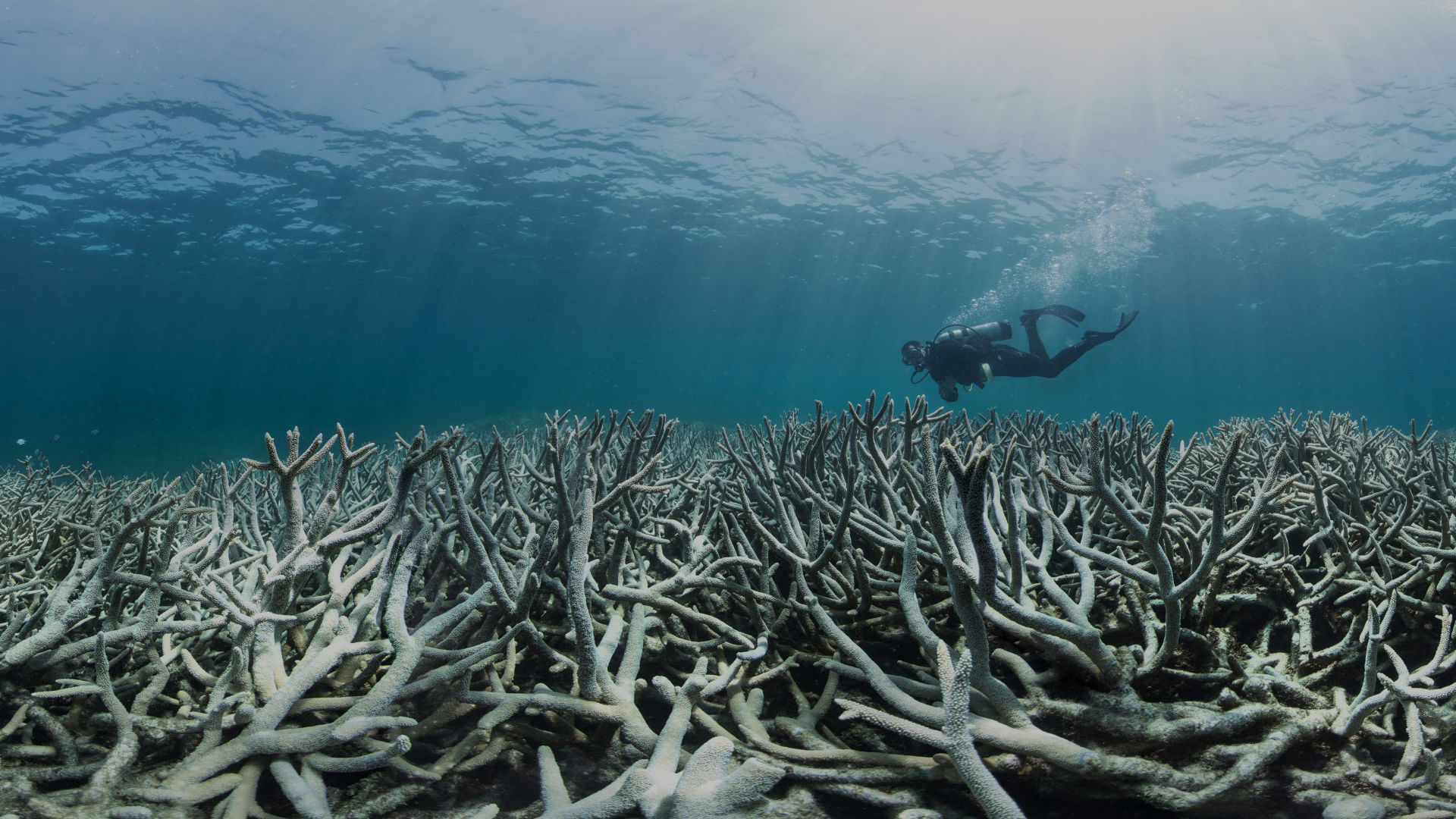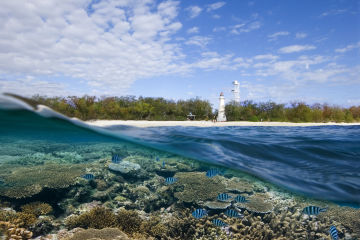
Climate change
Climate change is the single biggest threat facing the Reef.
#What's happening?
Temperatures are rising on our land and in our oceans, caused primarily by an increase of carbon dioxide and other greenhouse gases. Carbon dioxide levels have been rising steadily for more than 100 years due mainly to the burning of fossil fuels, trapping more heat in our atmosphere and contributing to climate change.
The Great Barrier Reef is one of the richest and most complex natural ecosystems on the planet, but climate change is the biggest threat to the future of coral reefs here and around the world. It impacts reefs in a number of ways:
Coral bleaching
When corals suffer heat stress, they expel the microscopic algae that live inside their tissues, revealing their white skeletons. Bleached corals are not dead, but are more at risk of starvation and disease.
Already marine heatwaves have triggered four mass coral bleaching events on the Great Barrier Reef in just seven years, reducing shallow water coral reefs by as much as 50%. Coral reefs can recover from bleaching over time, but only if temperatures drop and conditions return to normal.
Ocean acidification
The ocean absorbs carbon dioxide from the atmosphere, making it more acidic. This process is known as ocean acidification. Since the late 18th century, the ocean has absorbed about 30% of the carbon humans have generated, decreasing its pH level.
A more acidic ocean means corals are less able to build skeletons and form coral reefs, which help protect coastlines from storms and provide habitats for thousands of species of marine life.
Severe weather events
Climate change is increasing the frequency and intensity of severe weather events. Coastal regions like the Great Barrier Reef are particularly exposed to damaging cyclones, flooding and storms.
Between 2004 and 2018, 10 cyclones of category three or more crossed the Great Barrier Reef, causing significant damage to coral reefs.
Habitat changes
As water temperatures rise, many marine species are being forced to move south to cooler habitats. This shift creates increased competition for food and shelter in cooler waters, threatening the entire ecosystem.
For Reef communities, the loss of marine life can have a devastating impact on local ecosystems, food sources and other industries such as tourism.
#Tackling climate change
We have a once-in-a-generation opportunity to turn the tide on coral reef decline, but the window to act is closing.
To protect the Reef from climate change we must:
Reduce emissions
Insufficient global action on climate change is taking a serious toll on the health of our Great Barrier Reef. Urgent global action to drastically and rapidly reduce greenhouse gas emissions is needed now if we are going to have any chance of saving coral reefs.
We must also strengthen key ecosystems like seagrass meadows, mangroves and wetlands, which help absorb carbon dioxide from the atmosphere. These ecosystems play a key role in combating climate change by storing carbon. The Reef is one of the world’s most powerful blue carbon sites.
Help coral reefs adapt
Emission reduction alone is no longer enough to guarantee the survival of coral reefs. While the world works towards reducing greenhouse gas emissions, we must also help coral reefs adapt to the warmer temperatures already caused by climate change.
We are doing this by developing and scaling up interventions that buy time for coral reefs. We’re concentrating on protecting corals from severe bleaching, helping them adapt to warmer temperatures and actively rebuilding resilient reefs where necessary.
#What we're doing

Resilient Reefs
Partnering with front-line Reef communities across the Pacific and beyond to respond to climate change and local threats.

Reef Islands
Restoring critical island habitats to protect ecosystems and save vulnerable species.

#Tomorrow needs you, now.
The Great Barrier Reef is in desperate need of support. Donate today to help grow new baby corals, creating a better future for the Reef.
